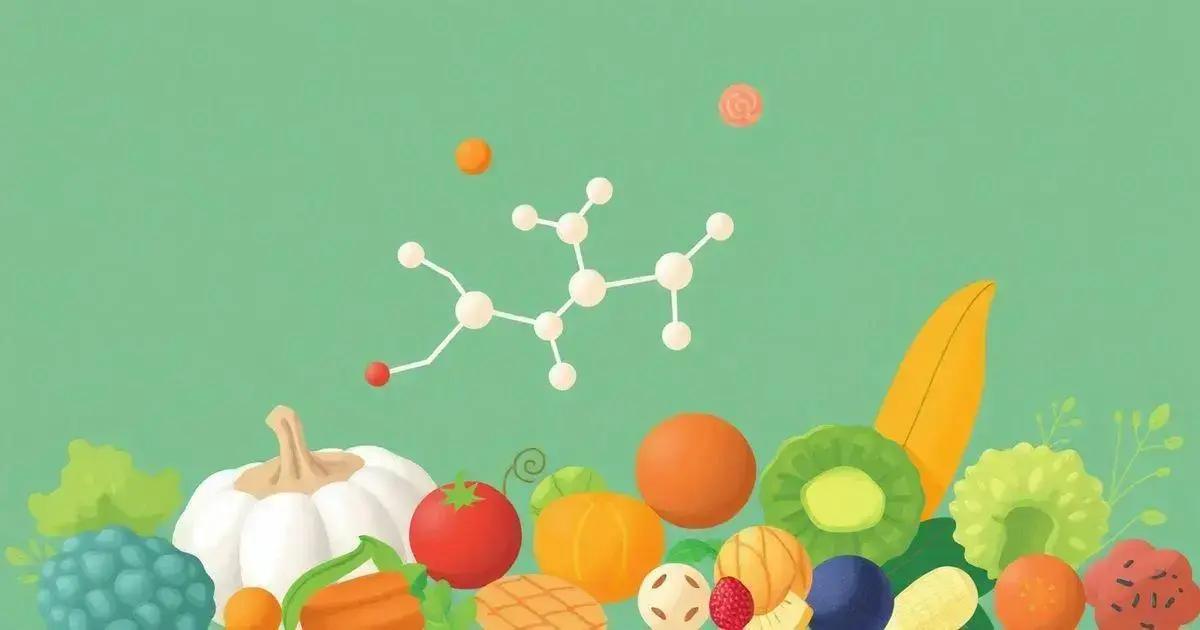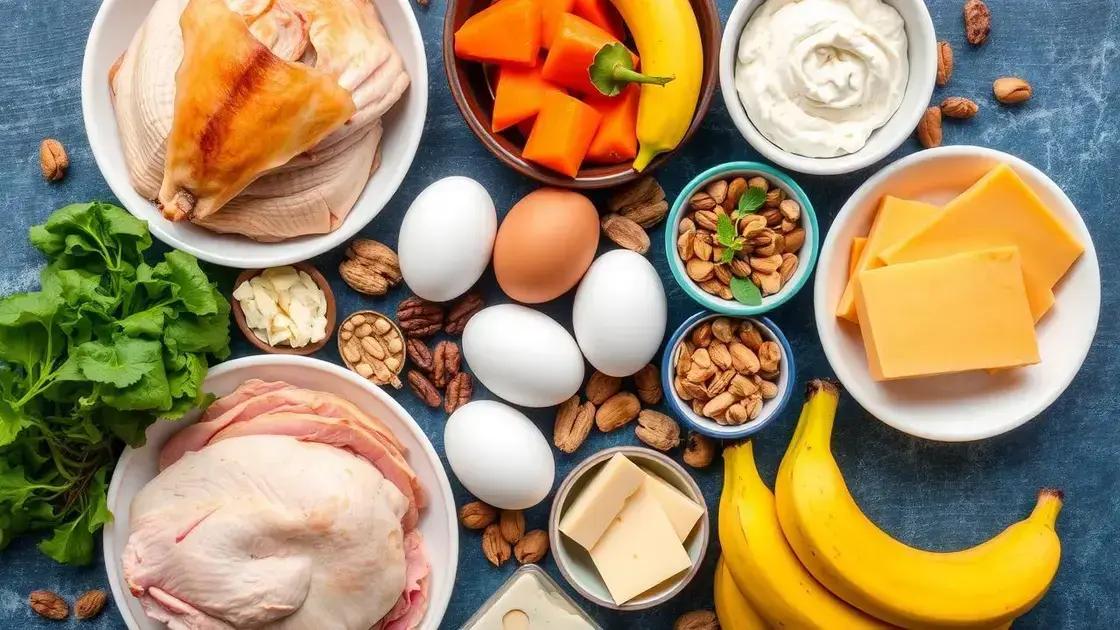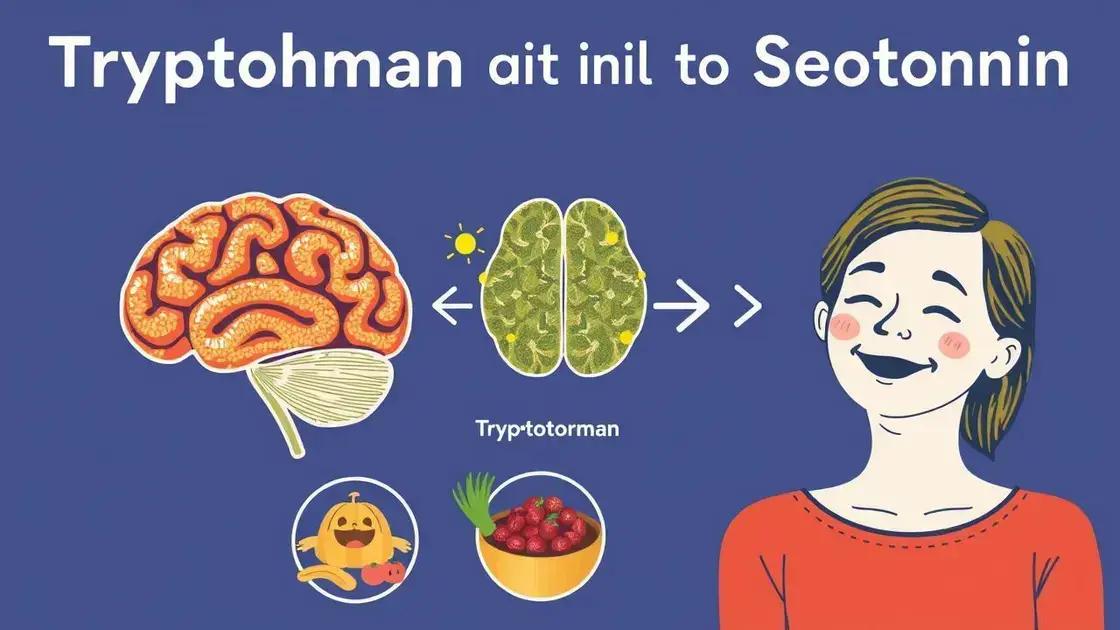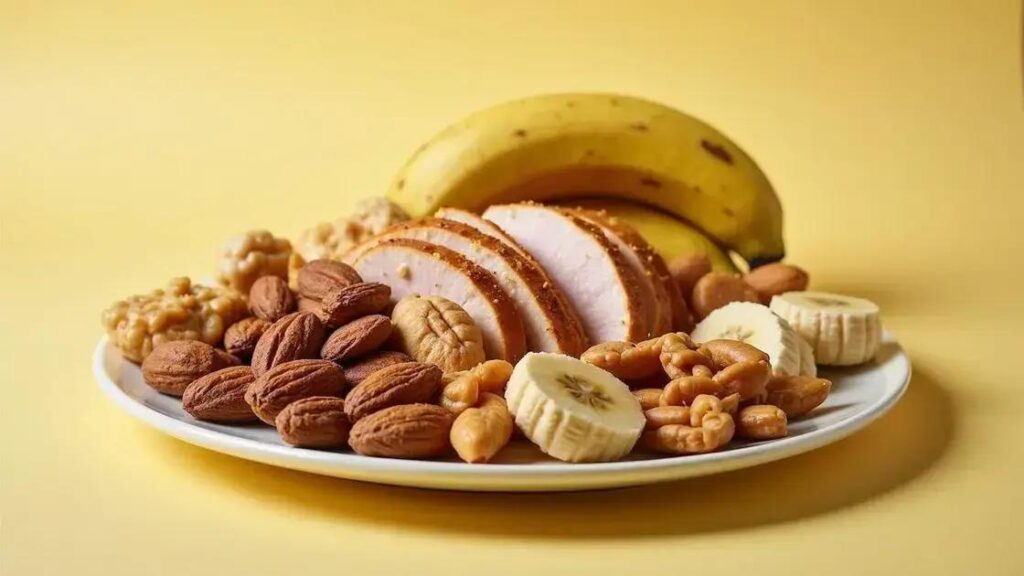To improve your mood, incorporate foods rich in tryptophan such as turkey, chicken, eggs, and nuts into your diet, as they help increase serotonin levels, contributing to feelings of happiness and well-being.
Are you looking for a natural way to lift your mood? Eating foods rich in tryptophan can be a delicious solution. Tryptophan is an essential amino acid that plays a vital role in the production of serotonin, the neurotransmitter that contributes to feelings of happiness and well-being. In this article, we will explore what tryptophan is, identify some top foods high in this nutrient, and provide tips on how to easily incorporate them into your daily diet.
What is Tryptophan and Why is it Important?

Tryptophan is an essential amino acid, which means our bodies cannot produce it on their own. We must obtain it through the foods we eat. Tryptophan is crucial because it helps our body make serotonin, a neurotransmitter that contributes to feelings of happiness and well-being. Low levels of serotonin can lead to mood disorders such as depression and anxiety.
Why is Tryptophan Important?
Tryptophan also plays a role in regulating sleep and appetite, making it vital for overall mental health. When tryptophan is converted into serotonin, it enhances our mood, helps us enjoy restful sleep, and can even help control our cravings.
Incorporating foods rich in tryptophan into your diet can support your emotional health and make you feel more balanced. A balanced mood can help improve your concentration, foster better relationships, and increase your overall quality of life. Remember that a steady intake of tryptophan is essential, especially for those experiencing stress or low mood.
Top Foods High in Tryptophan

Including tryptophan-rich foods in your diet can significantly boost your mood. Here are some top foods that are high in this essential amino acid:
1. Turkey
Turkey is well-known for its high tryptophan content. It is often associated with post-Thanksgiving naps due to its ability to promote serotonin production.
2. Chicken
Chicken is another poultry option rich in tryptophan. Enjoying a healthy portion can help improve your mood while providing lean protein.
3. Eggs
Eggs contain a good amount of tryptophan along with healthy fats and vitamins. They are versatile and can be included in many dishes.
4. Cheese
Cheese is not only tasty but also packed with tryptophan. Opt for varieties like cheddar or mozzarella for added flavor.
5. Nuts and Seeds
Nuts and seeds, such as almonds and pumpkin seeds, are great snacks rich in tryptophan. They are perfect for snacking throughout the day.
6. Fish
Fish such as salmon and tuna are excellent sources of tryptophan. They also provide omega-3 fatty acids, which are beneficial for brain health.
7. Bananas
Bananas not only provide energy but are also a good source of tryptophan. Enjoy them as a quick snack or in smoothies.
8. Oats
Oats are not just for breakfast; they are rich in tryptophan and can help keep your mood stable. Try oatmeal or overnight oats for a nutritious meal.
Incorporating these tryptophan-rich foods into your meals can help support your mental well-being and improve your mood.
How Tryptophan Affects Your Mood

Tryptophan greatly impacts your mood by being a precursor to serotonin, a neurotransmitter known as the “feel-good” chemical. When you consume tryptophan-rich foods, your body processes this amino acid and converts it into serotonin. This process can have a significant influence on your emotional state.
How Serotonin Works
Serotonin is responsible for regulating mood, anxiety, and happiness. Higher levels of serotonin can lead to improved feelings of well-being and lower feelings of depression. Conversely, low serotonin levels are often linked to mood disorders, such as depression and anxiety.
The Connection Between Tryptophan and Sleep
Tryptophan also plays a role in the sleep cycle. It is involved in the production of melatonin, a hormone that helps regulate sleep. Better sleep contributes to a better mood. When you are well-rested, you are less likely to feel irritable or anxious.
Other Factors Affecting Mood
While tryptophan is important for mood regulation, it is not the only factor. Nutrients like vitamins B6 and B12, and omega-3 fatty acids also contribute to serotonin production and emotional health. A balanced diet that includes a variety of these nutrients can support your mental well-being.
Combining tryptophan-rich foods with a wholesome diet and regular exercise can help you maintain a positive mood and an overall sense of well-being.
Tips for Incorporating Tryptophan-Rich Foods into Your Diet

Incorporating tryptophan-rich foods into your diet can be easy and delicious. Here are some helpful tips to get started:
1. Start Your Day with Breakfast
Begin your day with a breakfast that includes eggs or oatmeal. Adding nuts to your oatmeal can not only increase tryptophan but also make it more filling.
2. Include Poultry in Your Meals
Chicken or turkey can be the main protein source in your lunch or dinner. Try grilling chicken breast or making a turkey sandwich for a tasty, nutritious meal.
3. Snack Wisely
Keep snacks like nuts, seeds, or yogurt on hand. They are convenient, portable, and full of tryptophan. These snacks can keep your energy steady and mood positive.
4. Create Smoothies
Blend fruits with yogurt or nut butter for a delicious smoothie. Adding bananas or oats can also boost the tryptophan content and make for a nutritious snack or breakfast option.
5. Experiment with Recipes
Look for recipes that include tryptophan-rich foods. Whether it’s a quiche for brunch or a fish dish for dinner, experimenting can make meals fun.
6. Pair Foods to Enhance Absorption
Combine tryptophan-rich foods with carbohydrates. Carbs help transport tryptophan to the brain more effectively, enhancing its mood-boosting benefits.
7. Stay Consistent
Make it a habit to include at least one tryptophan-rich food in every meal. This consistency will help you maintain a balanced mood over time.
Incorporating Tryptophan-Rich Foods for Better Mood
Eating foods rich in tryptophan can significantly improve your mood and overall well-being. By understanding what tryptophan is and how it works in the body, you can make conscious choices to include it in your diet.
From turkey and eggs to nuts and seeds, the options are diverse and delicious. Remember to combine these foods properly to maximize their benefits, like pairing them with carbohydrates.
With a little planning and creativity in the kitchen, you can easily incorporate these foods into your daily routine. A balanced diet filled with tryptophan-rich foods not only supports your emotional health but also enhances your quality of life.
Take action today to nourish your body and mind with these wonderful food choices!
FAQ – Frequently Asked Questions about Tryptophan-Rich Foods and Mood
What is tryptophan and how does it affect mood?
Tryptophan is an essential amino acid that the body uses to produce serotonin, a neurotransmitter that helps regulate mood and feelings of happiness.
Which foods are high in tryptophan?
Foods rich in tryptophan include turkey, chicken, eggs, cheese, nuts, seeds, fish, bananas, and oats.
How can I incorporate more tryptophan-rich foods into my diet?
Include tryptophan-rich foods in your meals by adding them to breakfast, using them in snacks, or experimenting with new recipes.
Can tryptophan-rich foods help with sleep?
Yes, tryptophan is involved in the production of melatonin, a hormone that regulates sleep. Consuming these foods can support better sleep.
Is it necessary to combine tryptophan-rich foods with carbs?
Yes, combining them with carbohydrates can enhance the absorption of tryptophan, making it more effective for boosting mood.
Are there any side effects of consuming too much tryptophan?
In general, tryptophan from food sources is safe. However, excessive supplementation can lead to side effects; it’s best to consult a healthcare provider.













